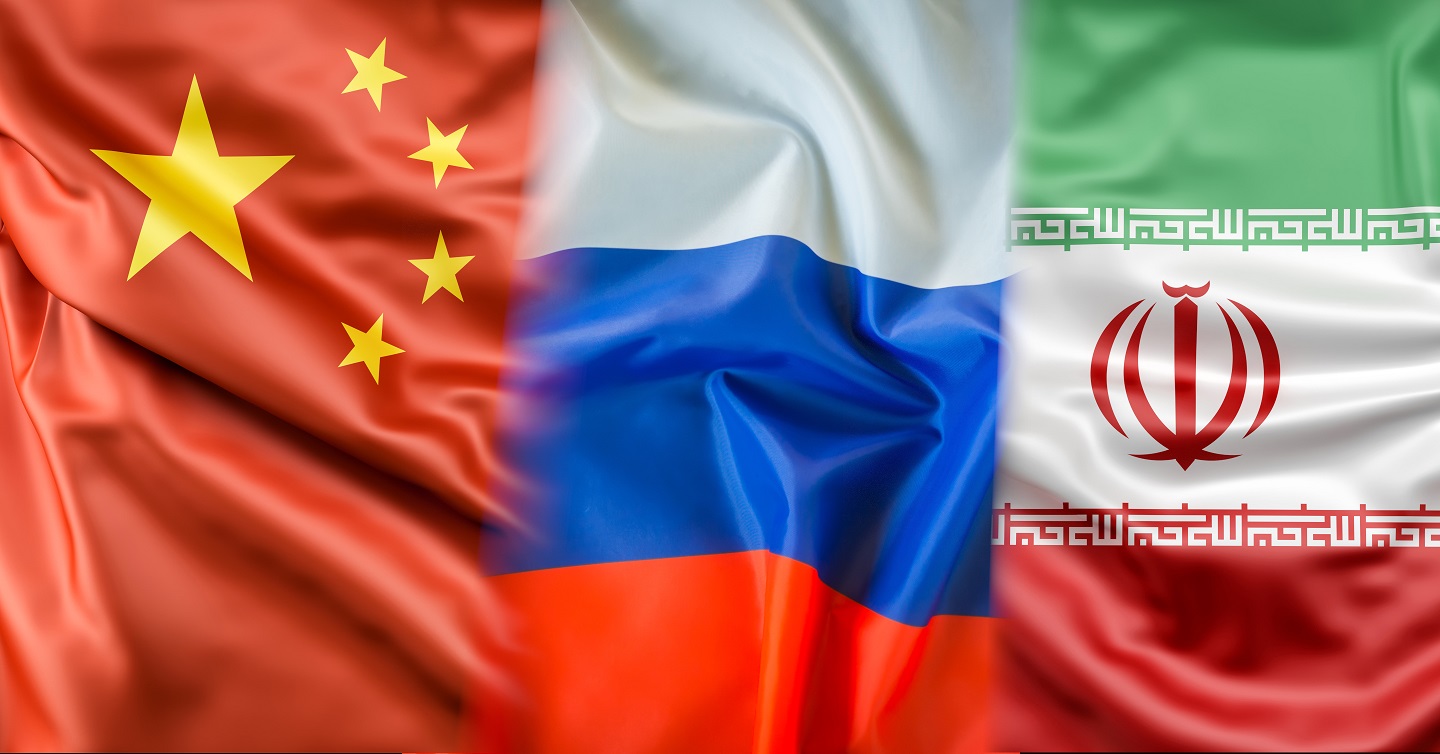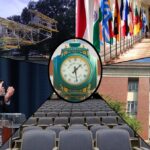
As the United States sees its dominant position in the world diminish, and rising powers such as China ascend, it will find that allies will be indispensable in the coming years.
The United States’ global power has been in steady decline over the past 20 years. The United States must, therefore, reevaluate its global presence and its relationships with allies and partners in order to adapt to an ever-changing international environment and prolong its global power and influence. The shift of the post-Cold War unipolar world order toward a multipolar world exacerbated America’s global decline. A gradual shift that slowly diminished “American imperialism” manifested as a series of hard and soft power-based policies to extend the United States’ political, economic, and cultural influence worldwide. However, the United States no longer has the luxury of relying on such power. Instead, it must use its remaining influence, in the forms of military assistance and diplomacy, to support more of its like-minded allies’ and partners’ international security objectives.
As the United States sees its dominant position in the world diminish, and rising powers such as China ascend, it will find that allies will be indispensable in the coming years. Each U.S. ally has different national interests, some competing and others complementary, but the United States should support its allies and partners in their geopolitical areas of interest to prevent its main adversaries from overpowering American influence in those regions. Two of these alliances and geopolitical areas of interest include France in West Africa and Australia in the South Pacific. Shared investment in protecting areas of insecurity will reduce the United States’ need to control every corner of the world, which has become an expensive and unattainable goal. It will also enable allies to amplify their strengths and create stronger partnerships with the United States.
An ongoing example of this dynamic is U.S. support of the French Operation Barkhane in the Sahel, the vast region of west and north-central Africa extending from Senegal eastward to Sudan. The Sahel is an important strategic region given China’s growing presence, evidence of emerging terrorist threats, and continued emigration from the region to Europe as a result of climate change and general instability. Since 2012 France has been strongly committed to curbing terrorist threats in the region along with its G5 local partners (Burkina Faso, Chad, Mali, Mauritania, and Niger). The United States has shown support to the French armed forces by providing ISR (intelligence, surveillance, and reconnaissance) and air-to-air refueling and strategic lift capabilities. At the same time, however, the United States has sought to decrease its footprint in Africa by reducing its troop presence—and therefore its focus—in the area. The Sahel region will be an area of interest in the future for the reasons enumerated above. If the United States is intent on reducing its troop presence on the ground, it should continue to support French activity by contributing alternative resources that will enable the French military to more effectively and efficiently execute its operations. Not only will supporting French operations serve American strategic interests while limiting direct U.S. involvement, it may also prevent future conflict in the region.
Another opportunity for the United States to support allies concerns Australia’s effort to deter Chinese influence in the Pacific Islands region. As China continues to broaden its influence in the South Pacific, Australia has pledged a “Pacific step-up” to build stronger relationships with its Pacific Island neighbors. The initiative involves providing development assistance, enhancing digital connectivity, and improving energy infrastructure through a Trilateral Partnership between Australia, the United States and Japan. While the South Pacific region may not be a source of traditional security threats to the United States, limiting Chinese influence in the region will continue to reinforce other efforts to deter U.S. competitors. The United States has already taken a positive step by placing increased importance on Pacific alliances with its recent announcement to formalize defense ties with Australia, India, and Japan in a Pacific alliance system similar to the North Atlantic Treaty Organization (NATO).
In April 2020 the European Union announced that it would be donating an additional €194 million to strengthen the security and defense capabilities of the G5 Sahel countries and to improve regional living conditions, which often inflame regional violence. Furthermore, the Economic Community of West African States (ECOWAS) has adopted a 2020-2024 plan and pledged to mobilize $1 billion to address terrorism in the region. The United States should support and encourage these projects on the world stage at the United Nations (UN) and through its membership in other international organizations as well as through its diplomatic corps, both directly and indirectly. For example, the United States might not veto policies promoted by the UN Office for West Africa and the Sahel (UNOWAS) once they reach the United Nations Security Council (UNSC).
Since 2016 the importance placed on alliances and partnerships has diminished.
Historically, the United States has valued its allies, from its early collaboration with France during the American Revolutionary War, to more recent partnerships like those mentioned above. The United States, however, has not always been a considerate ally, particularly during the last few years of the Trump administration. Since 2016 the importance placed on alliances and partnerships has diminished. Such devaluation of allies is reflected in the many international agreements from which the Trump administration has withdrawn, such as the Iran Nuclear Deal, the Paris Agreement on climate and the Trans-Pacific Partnership (TPP), to name only a few. While many countries still revere the United States in some respects, many have lost faith that the United States still holds the same values it did in the 1990s when at the peak of its international power. The Trump administration’s treatment of allies as well as the changing international environment towards a more multipolar world order has only solidified this sentiment. The combination of these events has increased tensions with partners and allies, isolated the United States and accelerated a decline in the United States’ international standing.
U.S. friction with allies and partners is not unique to the Trump administration, however. During the Obama administration, transatlantic tensions flared after news broke that the National Security Agency (NSA) had wire-tapped German leaders. In 2014 Russia’s annexation of Crimea exposed the limits of American power in establishing thresholds for action against a peer competitor. President George W. Bush fueled conflict with allies and partners in the 2003 Iraq War and the still-ongoing wars in Libya and Syria, among others, continue to impugn U.S. hegemony.
Relationships with allies and partners are naturally complicated, but the United States has approached them with an arrogance that unnecessarily strains them. Through an indirect narrative, the United States likes to remind the world that without an American intervention in World War II, Europe and East Asia might now be in the hands of fascists and communists. The United States also boasts that without its (and Britain’s) construction of the liberal international order and the subsequent defeat of communism, the global distribution of power might look much different today.
While the narrative of American excellence is based on historical realities, the United States should not be so blind to history as to forget the paramount role allies and partners have played in supporting its position as both a bipolar and unipolar power. If the United States does not adjust its thinking to the realities of a multipolar world and work to improve its relationship with allies and partners, nations will create alternative partnerships and alliances to adapt to the changing international environment without the United States.
Alliances with France and Australia are crucial alliances that the United States needs to focus on in order to deter Chinese influence around the world. And, while the United States has historically seen value in alliances and partnerships, it has not sufficiently acknowledged the increasing importance of strong alliances amidst a changing global balance of power. U.S. allies are not only incredibly capable, but they have similar regions of interest in which collaborative action could benefit U.S. national security objectives. The United States can no longer afford to be present in every corner of the world, especially with current levels of economic dissatisfaction and a rising defense budget. In response to the COVID-19 pandemic, scarce funds will likely be refocused domestically. Yet, retaining geopolitical influence in different regions across the globe is a crucial measure if the U.S. wants to limit the growing influences of peer competitors such as Russia or China.
Historically, all empires have collapsed, and the American empire will be no different. In order to retain its global power and influence a little while longer, the United States should increase its support of allies and partners in regions of shared interest, such as the South Pacific and the Sahel. Reevaluating its global presence and its relationship with allies and partners is necessary for the U.S. to successfully adapt to the ever-changing international environment and just may the dramatic downfall of the American empire. After all, the only real constant in history is that change is inevitable.
Paula Alvarez-Couceiro is a recent graduate of Johns Hopkins University School of Advanced International Studies (SAIS) where she earned an MA in Strategic Studies and International Economics in 2020. The views expressed in this article are those of the author and do not necessarily reflect those of the U.S. Army War College, the U.S. Army, or the Department of Defense.
Photo Description: Flags of China, Russia and Iran
Photo Credit: Flag pictures created by www.slon.pics – www.freepik.com





I was hoping for something deeper. Does the remark that 2016 was the beginning of a downward trend in alliance refitting refer to President Obama’s foreign policy since he was in charge at that time? While I completely agree with the author about France and Australia as allies, I think that we would benefit from a direct discussion of the benefits of specific policies and the multiple dimensions of such friendships, at least from a DIME perspective (Which I consider minimal resolution).
Maybe the format is too constrained to address such issues, but a less oblique discussion of general scaling back in Africa of some kinds of support while fully supporting in other ways makes more sense. For instance, since AFRICOM was invented during the so year period, it seems almost silly because it indicates a steady 20-year decline.
I provide these comments as a means of strengthening the author’s thinking. Feel free to reach out.
Does the U.S. see its position in the world diminishing or has it been correcting the baseless statements, such as “American imperialism?”
We’ve been returning to a period of being a proud country by regaining our economic, cultural, and political power once again, instead of giving up the mantle of leadership as the world ignores or accommodates other countries’ illegal or dubious actions on the world stage. This is not arrogance but necessity.
The U.S. does support its allies and can’t understand why some refuse to uphold their own end of the bargains they have made by treaty or common sense. The United States has, by your own statement, assisted France in Africa. As with Australia, the choke points around the world are known to all, including the U.S., and we assist the countries in the Pacific by addressing these areas with our friends. One example is China and how it spreads its tentacles into S. America, Africa, S. China Sea, India-Pakistan, Afghanistan, etc. There is also Iran, who has never stopped spreading terrorism across the world (even after being “paid off”) and has never stopped its nuclear ambitions.
The United Nations has also presented itself as an organization marching towards becoming a dominant power, though recent events show how it seems more of an organization that upbraids the U.S., while ignoring others. The same can often be said of NATO want the U.S. to act in a certain way while they watch – none are “incredibly capable” without U.S. support and, for the most part, equipment, and training.
The United States has not been blind to historical realities but has to navigate between what the world situation is and will be and how best to accomplish preventing, restraining, and reacting to the imperial designs of others.